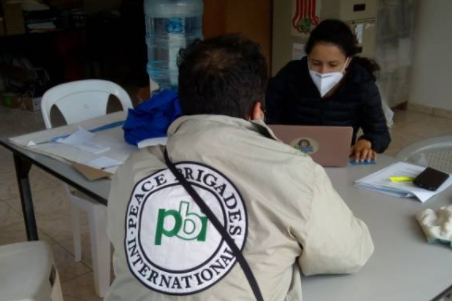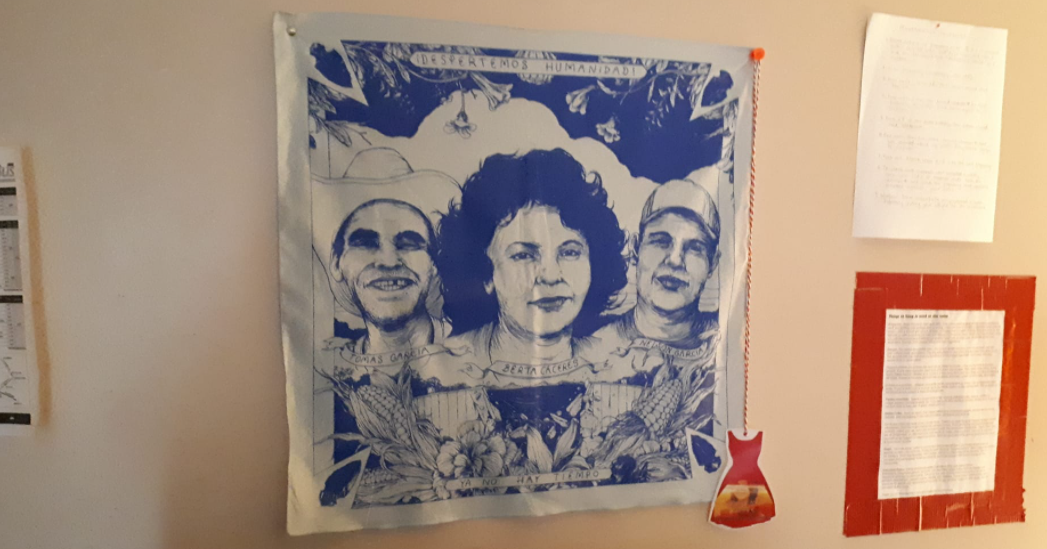
On November 23, the Peace Brigades International-Honduras Project tweeted: “PBI accompanies @COPINHHONDURAS in their offices to share about the risk situation and progress in the search for justice in the murder of #BertaCáceres.”
They add: “COPINH, family nucleus of #BertaCáceres and legal team will continue the precautionary measures in their favor according to the CIDH [Inter-American Commission on Human Rights].”

On July 5, The Guardian reported: “A US-trained former Honduran army intelligence officer who was the president of an internationally-financed hydroelectric company has been found guilty over the assassination of the indigenous environmentalist Berta Cáceres.”
That article adds: “Caceres, winner of the Goldman prize for environmental defenders, was shot dead two days before her 45th birthday by hired hitmen on 2 March 2016 after years of threats linked to her opposition of the $50m Agua Zarca dam.”
Now, more than four months later, David Castillo, the man found guilty in the murder, still has not been sentenced for this crime.
On November 19, Telesur also reported: “The family of Berta Cáceres and the members of COPINH will continue with the precautionary measures in her favor, as indicated by the Inter-American Commission on Human Rights (IACHR).”
Caceres family lawyer Víctor Fernández says Berta’s family faces “a power structure, the economic structure that murdered Berta Cáceres, who is not only David Castillo, but the company DESA, the national and international financial system that financed and even continues to benefit the entrepreneurs” who benefited from the concession of the hydroelectric dam” on the Gualcarque River sacred to the Lenca people.
Earlier this month, Open Democracy reported: “[COPINH continues to seek] the revocation of permission for the hydroelectric project. It wants the state to be held accountable for failing to protect Cáceres and to investigate the investment in initiatives premised on such massive human rights violations.”
PBI-Honduras has accompanied COPINH since May 2016.
A wall-hanging in the Unist’ot’en Supporters House in the town of Houston, 7,200 kilometers north-west of Tegucigalpa. Wet’suwet’en land defenders and water protectors are being criminalized and are in jail for their struggle to protect their sacred Wedzin Kwa river from a fracked gas pipeline.


